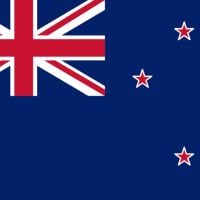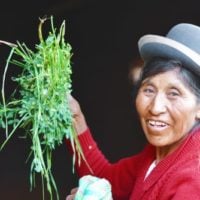Deadline: 13-May-2024
The French Committee for International Solidarity (CFSI) has launched a Promotion of Family Farming in West Africa (Pafao) Program.
The Promotion of Family Farming in West Africa (Pafao) program has been jointly supported, since 2009, by the Fondation de France and the French Committee for International Solidarity (CFSI). It benefits from a contribution from the JM.Bruneau Foundation (housed at the Fondation de France) and the French Development Agency (AFD). The Joint Action for West-Africa (Jafowa) program participates in the capitalization component of the program. The Network of West African Farmers’ and Producers’ Organizations (Roppa) is a member of the steering and monitoring committee. The program supports or has supported more than 330 initiatives since 2009 (annual “general” call for projects and 6 Coup de Pouce calls.
Objectives
- The general objective of the Pafao program is to:
- Promote local initiatives strengthening the access to healthy and qualitative food produced by viable and sustainable West African family farms and processed in either the country itself or in adjacent regions, all while ensuring an equitable distribution of the added value, produced throughout the value chains (this is the present call for proposals);
- Capitalize (produce knowledge) by drawing useful lessons beyond the projects, serving both organizations and advocacy actors. The objective is to contribute to the already existing documentation on topics such as agriculture and food system-sustainability. Subsequently, the newly acquired knowledge can then be used by decision-makers when deciding upon public policies;
- Support the construction of strategies for change of scale so that successful initiatives do not remain marginal but occupy more economic space.
Challenges
- The program provides financial support for local and farmer-led initiatives in West Africa to respond in a sustainable way to the growing demand of domestic markets, and to ensure a better distribution of added value. These initiatives meet two challenges:
- Strengthen and/or maintain the availability of local quality products from sustainable family farming in rural and urban markets – for mass consumption: How can sustainable family farming continue to supply domestic markets and better satisfy the most vulnerable populations, thereby increasing resilience in the event of a crisis? How can producers, processors, traders and consumers organize themselves to better respond to each other’s needs and benefit from a better distribution of the added value? How can the income generated by family farming strengthen the resilience of actors in the sector in the event of a crisis?
- Developing sustainable farming practices/sustainable food systems: How can family farming adapt to climate change and prepare for future crises (e.g. war in Ukraine and rising input prices in 2022)? How can it contribute to the preservation of natural resources and biodiversity, whether in the production, processing or marketing phases? How can they guarantee the diversification of production and the variety and nutritional quality of local products?
Funding Information
- The minimum contribution from the Pafao Support Fund is 10,000 euros. The maximum amount that can be requested depends on the duration of the submitted initiative. The maximum contribution has been set to 18,000 euros for a 12-month project, 36,000 euros for a 24-month project or 60,000 euros for a 36-month project. In the case of multi-year projects, the distribution of funds per year is unrestricted and depends on the life of the project.
Eligible Projects
- Only projects demonstrating an effective contribution to the creation of remunerative, fair and sustainable economic circuits will be selected in 2024. The presented project must respond to the prioritized question of the Pafao 2024 call for proposals.
- The program’s committee will prioritize projects that respond to the prioritized question of the call for proposals and:
- build on past initiatives while taking into consideration lessons learned by your or other organizations, working on similar topics or in the same territory;
- encourage cooperation between several of the concerned territorial actors;
- which are articulated with similar and/or complementary initiatives, and whose positioning in relation to these other initiatives and other actors (e.g. farmers’ organizations, national platforms, national or foreign support organizations, local authorities, government services, private-sector actors, consumer associations, media, international organizations, donors, etc.) is explicitly explained.
- The program’s committee will only select initiatives that demonstrate a real capacity for innovation, change or replication of successful experiences to boost the consumption of quality local products from sustainable family farming. Priority will be given to projects focusing on the downstream part of the value chain (processing, marketing). Projects in which the focus are given to capitalization and/or advocacy may also be selected.
- Projects can be annual or multi-year (maximum 3 years).
- Projects must take place in one of the following 16 West African countries: Benin, Burkina Faso, Cape Verde, Ivory Coast, Gambia, Ghana, Guinea, Guinea-Bissau, Liberia, Mali, Mauritania, Niger, Nigeria, Senegal, Sierra Leone, Togo.
Targets
- The 2024 call for proposals targets initiatives that help to:
- improve people’s resilience in the event of crises by supporting sustainable local food chains;
- compete with imported products.
- Initiatives must target one or both of these challenges:
- marketing local products consumed by as many people as possible, including vulnerable groups;
- marketing local products from the most isolated areas and/or those suffering from insecurity.
- In addition, priority will be given to proposals based on one of the following two approaches:
- accessing major, formalized markets such as contracts with public institutions and businesses (school canteens, prisons, hospitals, hotels, supermarkets, etc.).
- targeting the role of West African consumers and their representative organizations in promoting local consumption.
Eligibility Criteria
- This call is only open to projects carried out in partnership by a minimum of two organizations, one West African and the other European (must be an EU member state). If the project leader is a West African organization, then the main partner must be European. Conversely, if the project leader is a European organization, then the main partner must be West African. The partnership between the two organizations must be formalized and pre-existing to the project for which the grant is requested. Other organizations may be involved as “other partners”.
- The applicant must:
- be a non-profit legal entity based in West Africa or Europe (EU), of the following type: farmers’ organization, West African NGO, support NGO active in West Africa or Europe (European Union – EU) as long as it operates with local partners. Cooperatives are also eligible. Public institutions and local authorities are not eligible as applicants;
- have been registered for more than one year;
- have previously carried out actions in the agricultural and food sectors.
- The partner must:
- be a non-profit legal entity of the following type: farmers’ organization, West African NGO, support NGO active in West Africa or Europe (EU) as long as it works with local partners, research and/or training organizations. Cooperatives are also eligible as main partners. Local authorities can be main partners, provided that their role is decisive and clearly explained in the grant application;
- Please note that other public institutions are not eligible as “main partners”, but can be included as “other partners” in the project.
- be linked to the applicant by a formal partnership which should have been initiated prior to the project for which the grant is requested;
- have participated in defining and implementing the project. Their role and added value must be clearly explained. The West African partners of European organizations play a key role in the design and implementation of the proposed project.
For more information, visit CFSI.







































